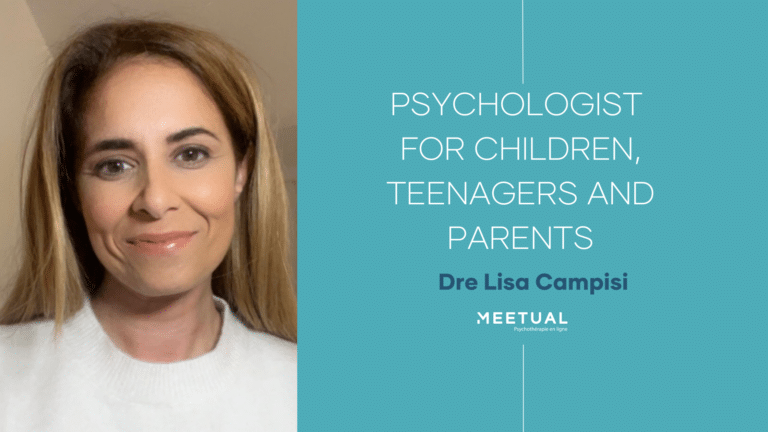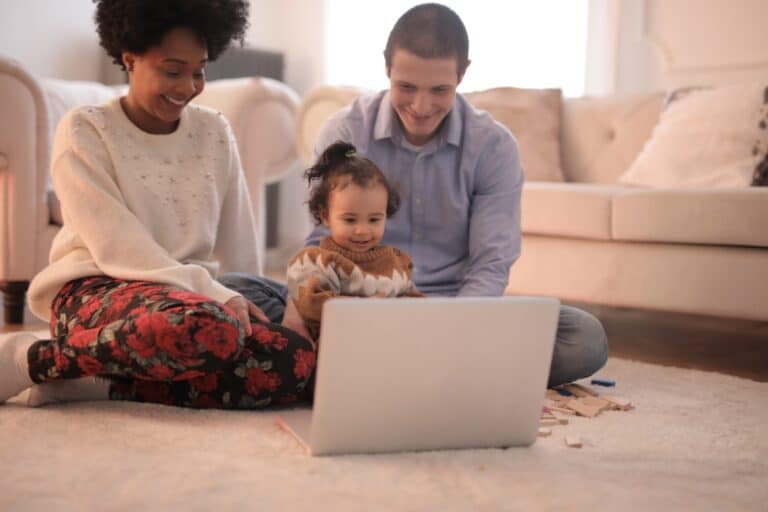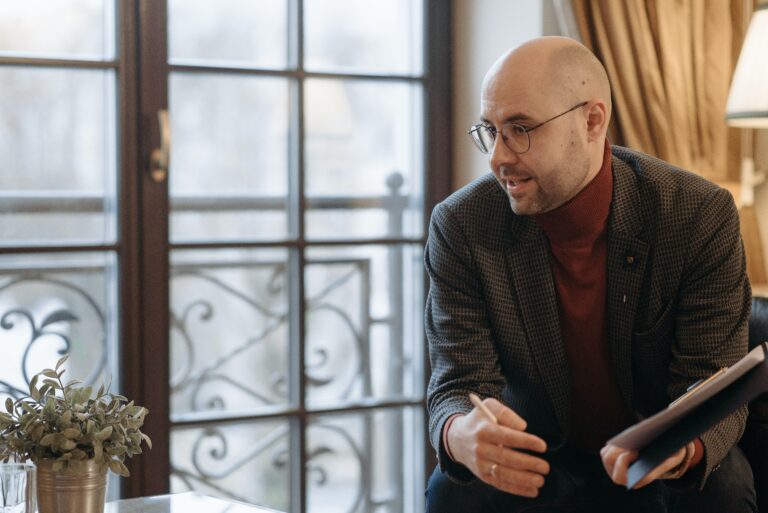Dr. Campisi will start her services on the Meetual platform in April 2022. She works in both English and French. The team asked her a few questions to introduce her to the Meetual clientele.
Can you tell us about the first consultation, Dr. Campisi?
First, we need to establish who is seeking the consultation. Who is the one bringing forth the presenting problem?
For children under the age of twelve, the parent is generally the initiator. Where possible, I like to have both parents present to get their perspectives on the situation.
If the situation involves the entire family, for example if a child is being aggressive towards their brother or sister, having the entire family present allows me to see the different dynamics involved. We then try to gather as much information as possible, to get to a specific plan of action. By intervening at the family level we sometimes discover other dynamics that are tied to the presenting issue.
During this first consultation, I meet with the child and those involved in seeking the consultation, and then we work together to understand the issue at hand, the factors that may have contributed to it and the possible solutions. I like to work in a collaborative manner.
I often tell parents that while I may be a specialist in child development, they are the specialists when it comes to their child.
What happens when a teenager contacts you directly?
If a teenager is the one contacting me, we can immediately get to the heart of the subject. I will usually start off by asking “What brings you here”, “Can you tell me what’s going on?”, “Tell me a bit about your life”.
With teenagers, privacy is also key, so I emphasize that this is a safe and private place for them to speak freely.
How do you work with children?
With children, I try to use play-based methods to reduce discomfort. We play games, and I will ask “Getting to know you” questions so that we both learn to get to know each other.
There are different methods to get them to express themselves.
If possible, we use a board and I will encourage children to draw. For the very shy ones, I will start with Yes\No questions and then gradually ask open-ended questions.
If several members of the family are present, I will sometimes ask more playful questions like: “Who is the most talkative one?”, “Who is the prankster?”, “Who is the most quiet?” “Who is the best cook?”. These questions tend to reduce discomfort while also providing some information regarding the family dynamics.
What is a successful consultation?
I can tell you of a case that comes to mind. It was an evaluation of a child that I diagnosed with an autism spectrum disorder. The end of the final consultation is obviously the diagnosis and it is often very difficult on a parent. The mother was crying as she left.
A few years later, I got an email from the mother. She wrote that the last time we saw each other was a very difficult and overwhelming day. She had difficulty seeing the positive in her life and wondered what future was in store for her child.
And then she shared a video of her child taking the school bus for the first time, smiling and waving to her. This was something she couldn’t imagine at the time, but having him diagnosed early allowed her to find the necessary support and services to make this special day possible. There is nothing more gratifying than this type of message. A session that appeared so sad at the time, shifted to something so gratifying.
What should a parent say to their child or teenager to encourage them to meet you?
When the desire to consult stems from the child or adolescent themselves, half the work is already done.
There are some issues, for instance with anxiety, where a person feels so uncomfortable that just the thought of not feeling that way is motivation enough to seek help. Individuals with anxiety often are very motivated to work to feel better.
It is a bit trickier when the adolescent is at home and doesn’t want to do anything except stay in bed all day. In that case, I often suggest that parents try to get them where they are at. Asking them “Would you like to feel better?”, “Would you like to be able to go out with your friends?” “Would you like to get help to be able to do these things?” Because there is help, it is not a magic trick or a quick fix; it will require hard work, but there is hope.
The goal is to try to reach them by targeting what the teenager wants to see change.
At what age can a child see a specialist?
It all depends on the problem at hand. However, I find that the younger they are, the more receptive they are. Because we approach it in a playful manner, it is a lot less intimidating. We’ll start off with “We’re here because there are some things that aren’t going so well at home, do you agree? Do you think that there are some things that could be improved”. Generally, they will say yes, although sometimes they will say “no, everything is okay”. In those cases, I may add “Would you like it if we all worked together, so that people laughed more and got less angry?”. The idea of working together in this goal is very important.
I will emphasize to the parents that I need their help to come up with solutions that will work for their family.
This is generally well received. I’m there to help them, not impose anything on them.
In the case of a child with behavior problems, for instance if a child is hitting their sibling, we can usually intervene as early as when they can speak, but we will usually focus on parent training to support the parents when they intervene with their child. If the problem is more internal, for example anxiety, it is usually more effective when the child is school-aged. If the child can read and write that is also helpful. But we can start the work quite early.
There is so much potential in these young lives. We want to provide them with everything they need to reach their full potential.








